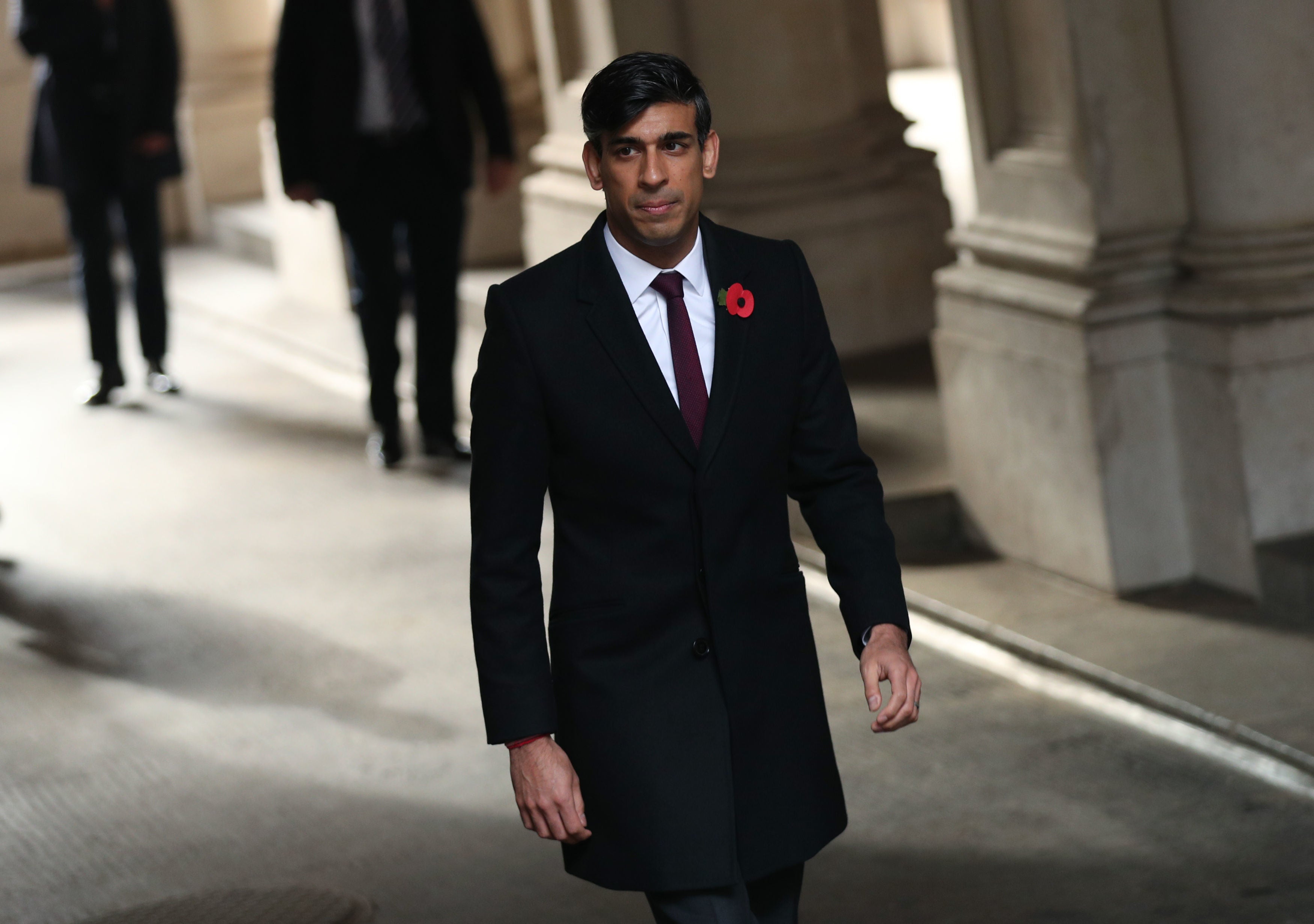Rishi Sunak must put his fears about borrowing to one side
UK GDP lost momentum in September and necessary lockdowns will create further problems. James Moore explains why Sunak must be cautious about withdrawing his support too quickly


Behind the headline figure showing that the UK economy grew by 15.5 per cent between July and September lies an uncomfortable truth.
The peak of the “bounce back” following the second quarter’s record 19.8 per cent contraction was lower than the City’s hopes and has left the economy a long way short of its pre-pandemic level. It is 8.6 per cent smaller than it was in January.
The bouncing ball looks almost certain to head down again with England in lockdown, Scotland operating tiered restrictions, Northern Ireland extending its restrictions and Wales only just easting out of them. A double dip downturn is on the way.
But bear with me, because I’m going to get the gloom out of the way before moving on to make a case for how to deal with it.
We’re in line for a rough winter. Growth slowed markedly towards the end of the quarter, and is clearly heading into reverse. The third quarter’s recovery was fuelled by consumer spending as pent-up demand from the second was released but fresh lockdowns have turned the taps off. Troublingly business investment didn’t pick up alongside it. The continuing damaging uncertainty created by Brexit probably played into the lacklustre numbers.
Rather than seeing the economy as a bouncing ball, it’s perhaps more accurate to view it as a car on the M25. After being stuck in a jam during lockdown, it picked up some speed only to move back into heavy traffic again.
To keep the motor running, it’s going to require continued government support, which is the sort of thing that troubles Tory MPs with a fiscally conservative mindset because that support is dependent on borrowing.
Here’s the good news: Chancellor Rishi Sunak can afford to do what it takes if he’s willing to be bold.
Yes he’s is borrowing a huge amount of money. The budget defect ballooned to £209bn in the first half of the year. Just in the month of September it leapt by £28.4bn to £36.1bn.
Those are all eye-popping numbers that would have had even the most spendthrift of Britain’s chancellors reaching for the No 11 Downing Street drinks cabinet.
But Britain is hardly alone in writing out IOUs as fast as they can be signed. In fact, a cursory comparison of the balance sheets of the G7 reveals Sunak is in a better position than some of his peers.
Oxford Economics says only Germany and Canada among G7 countries are forecast to have a lower gross debt-to-GDP ratio than the UK at the end of 2025.
With interest rates effectively at zero, Sunak can borrow cheaply to finance the support he needs to dole out. And he can count on a pay off if he keeps the taps turned on: a faster recovery and less long-term economic scarring.
He’s repeatedly talked about the current levels of borrowing being “unsustainable” and so they are. But with a potential vaccine now on the horizon, that problem should (hopefully) start to fall away if and when the economy embarks on a more sustainable recovery.
The danger comes in Sunak responding to the news from drug company Pfizer by withdrawing his support too quickly and replacing it with a fiscal squeeze with the aim of balancing the books faster than he needs to.
He should learn here from the mistakes of the previous Tory administrations, which launched their austerity policies before the recovery from the financial crisis had properly established itself, sacrificing growth and creating unnecessary hardship in the process.
There is no need to wallop the economy like that again, no need to embark on a second road to economic nowhere as some of the talking heads among the budget hawks would have him do.
Political realities may save him from that if it’s in his thinking. Boris Johnson has made it clear that he’s no fan of austerity and amid the chaos at No 10, the prime minister is in need of some more good news. He won’t relish his government being cast in the role of big blue meany as the nation picks itself up off the floor.
As for increasing taxes, which Sunak is starting to think about? That’s fine because it will be necessary in the medium term. The recent review into capital gains tax recommending an increase so the profits of wealthy people selling second homes, for example, could be properly taxed is a good example of what could be targeted.
Trouble is, increasing taxes never goes down well on the Tory benches, and with the back benches as restive as they are it will be harder still.


Join our commenting forum
Join thought-provoking conversations, follow other Independent readers and see their replies
Comments